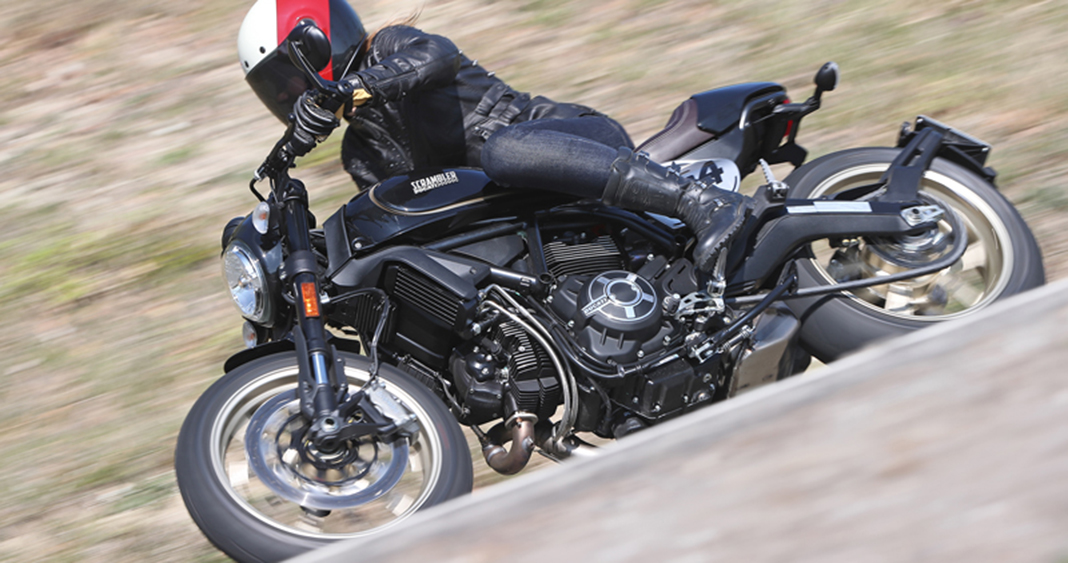Some bikes are built for a purpose, whether it’s turning fast laps, touring, cruising, adventure or flying 40 feet in the air over a motocross track. If the Ducati Scrambler Café Racer has a raison d’être, it’s simple: having fun.
Our invitation to the global press launch in Ducati’s hometown of Bologna, Italy, certainly conveyed that message, as it beckoned us to visit “the Land of Joy,” a.k.a. the world of the Ducati Scrambler. There, we were presented with the proper accouterments (Scrambler-branded trucker cap and knapsack) and taken to the Scrambler Ducati Food Factory for dinner (carchuterie, pizzas, pasta and, of course, plenty of wine). The Food Factory is an officially licensed restaurant, although it operates independently of Ducati, and inside patrons eat their fill of local specialties (sliced mortadella, mozzarella and pistachio pizza, anyone?) surrounded by Ducati Scrambler merchandise and custom-built Scramblers. The overwhelming vibe was young, hip and fun.
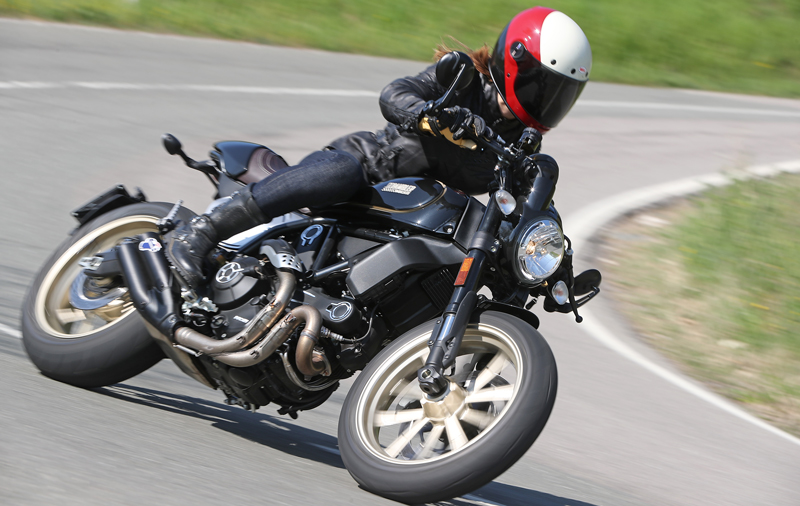
We were there to check out the newest Scrambler version, the pragmatically named Café Racer. Like the Desert Sled unveiled last fall, the Café Racer is a step beyond the basic, mostly cosmetic differences among the core Scrambler family members: the Icon, Classic, Full Throttle and Urban Enduro (the last of which has been discontinued for 2017). While it is based on the Icon, Ducati was quick to point out that the Café Racer is not just an Icon with clip-ons and a new seat; it’s a whole new take on the Scrambler concept.
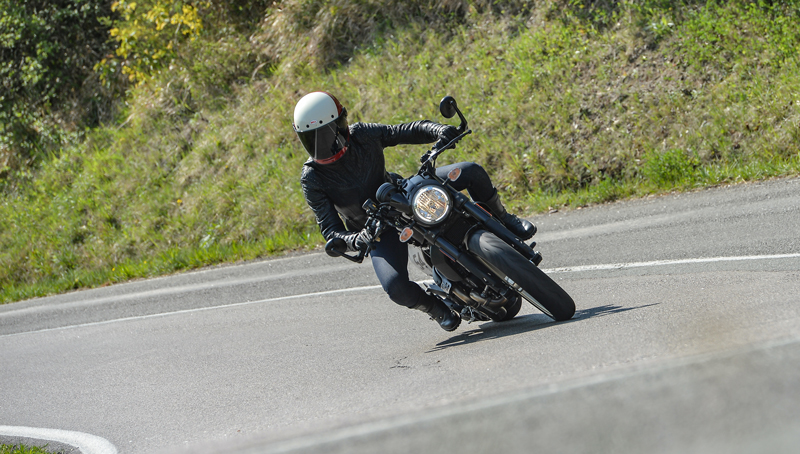
In profile, many of the differences are obvious: changes to the rear subframe and a longer rear shock lift the seat more than half an inch higher than the Icon’s, while the wide clip-ons are 6 inches farther forward and almost 7 inches lower, putting the rider in a comfortably sporty riding position. The rake and trail have both been shortened, and along with stiffer fork springs and a smaller, 17-inch front wheel, the Café Racer is more nimble and quicker steering than its Scrambler brethren. Sticky Pirelli Diablo Rosso II tires keep the bike connected to the curves, and a radial front brake is suitably strong.
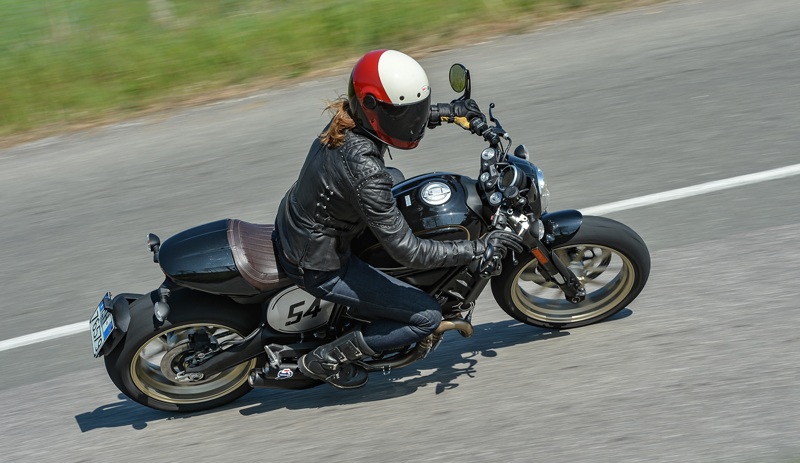
Other functional changes include a humped seat with cover, bar-end mirrors, standard Termignoni mufflers, a small windscreen and lowered headlight. Special styling licks include a short front fender, a black finish with brushed fins on the engine, a new tank logo, gold wheels, a “black coffee” color scheme and a number plate bearing the 54 of Ducati racer Bruno Spaggiari, who raced in the 1960s. The black and gold color scheme hearkens back to the famous Ducati 900 Super Sport of the 1970s and ’80s. In short, the new Café Racer looks really cool. I could only hope that some of that cool rubbed off on me as I swung a leg over and thumbed the starter.
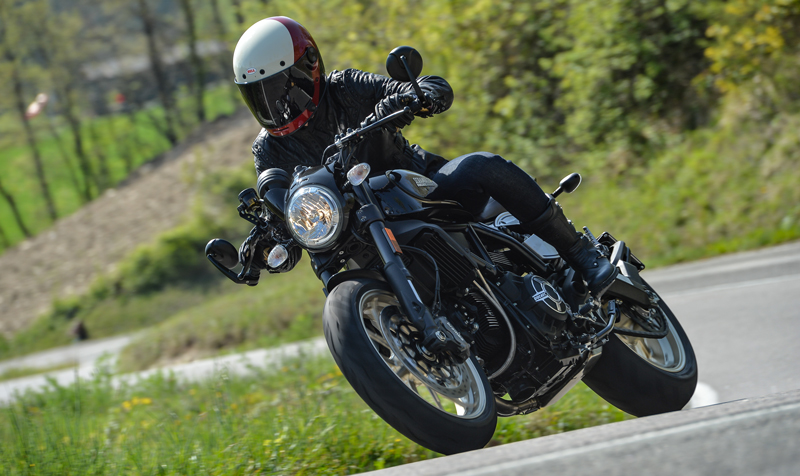
The air-cooled 803cc L-twin engine is unchanged, its spunky vibes accompanied by a nice throaty rasp out of the black Termi exhaust pipes. Hard deceleration can produce a few muffled pops, music to my ears as we climbed and descended the narrow roads traversing the Apennine Mountains near Bologna. The 2-valve, SOHC twin is the same one used in the other Scrambler models, as well as the new Monster 797. Back in 2015, this engine churned out 69.8 horsepower at the rear wheel on the Jett Tuning dyno, and it’s as fun as ever to run through its six gears. In fact, with revised throttle response that smoothes out what used to be a touchy on/off transition, the new Café Racer is easier to ride than previous Scramblers.
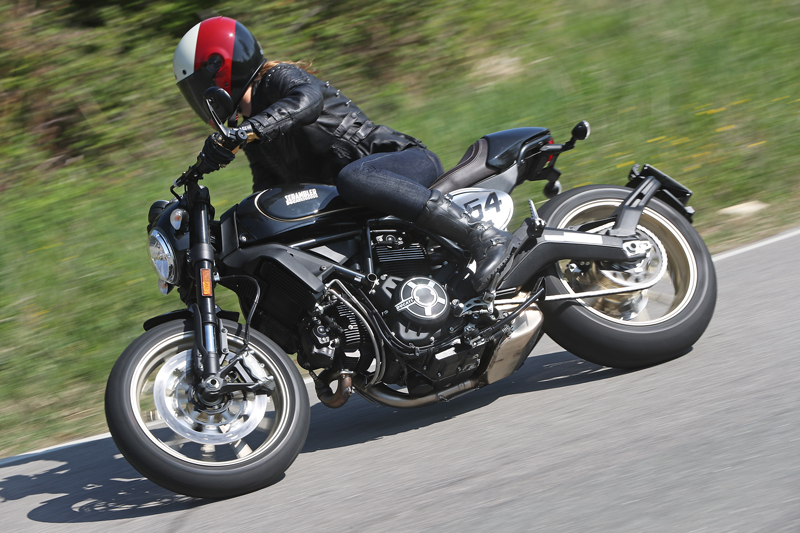
Riding such technical roads, it quickly became clear that the Café Racer doesn’t just look the part; it handles like a completely different machine. Losing the tall, flimsy handlebar and upright seating position in favor of a focused crouch that shifts more weight forward, the featherweight Café Racer makes easy work of quick transitions and hairpin turns. The stiffer suspension works well on smooth pavement and occasional irregularities, but encountering an entire turn full of bumps can set its head shaking and teeth chattering.
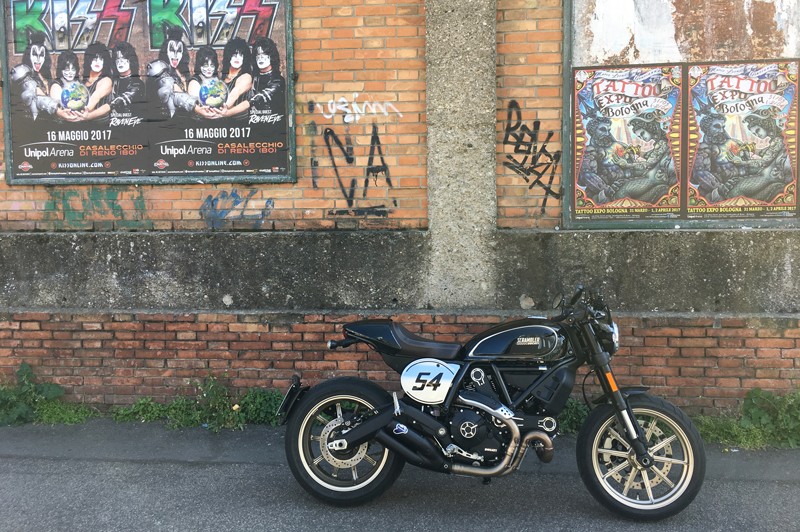
For the most part, however, the bike is predictable and fun to ride. The new throttle response is smooth and easy to control, while the ABS-equipped brakes offer good feel and are more than capable of hauling the little Café Racer to a stop. It’s so small and narrow that sliding around the seat, hanging a knee off one side or the other becomes part of the fun of riding it, even if you’re not all that close to touching a knee to the ground. With the Scrambler Café Racer, it’s about the experience, the fun, the joy of riding. Because spec sheets don’t stir the soul, right?
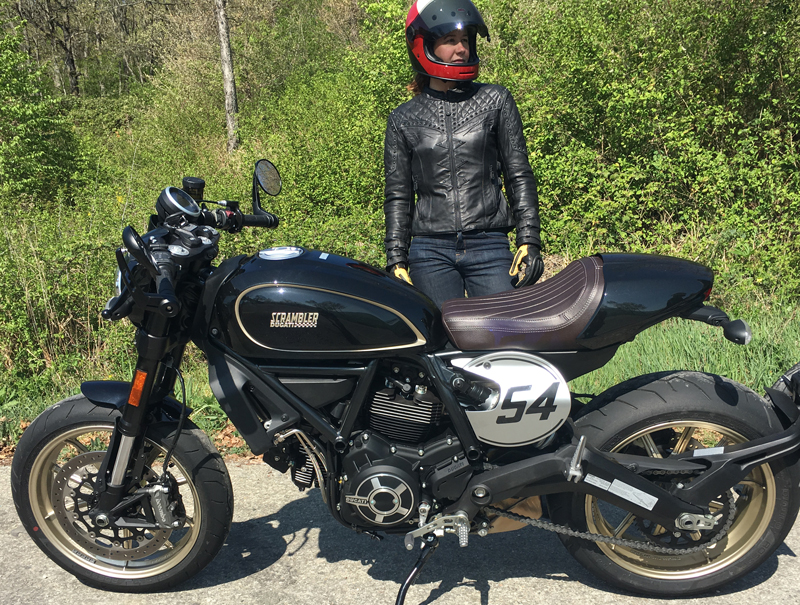
2017 Ducati Scrambler Café Racer
Website: ducatiusa.com
Base Price: $11,395
Engine Type: Air-cooled, transverse 90-degree L-twin, desmodromic SOHC, 2 valves per cyl.
Displacement: 803cc
Bore x Stroke: 88.0 x 66.0mm
Transmission: 6-speed, cable-actuated wet clutch
Final Drive: Chain
Wheelbase: 56.5 in.
Rake/Trail: 21.8 degrees/3.7 in.
Seat Height: 31.7 in.
Claimed Dry Weight: 379 lbs.
Fuel Capacity: 3.6 gals.
MPG: NA
Jenny’s Gear
Helmet: Bell Bullitt
Jacket: Black Brand Brazilian Waxed
Jeans: Tobacco Motorwear Women’s Jean
Boots: Stylmartin Continental
Gloves: Velomacchi


